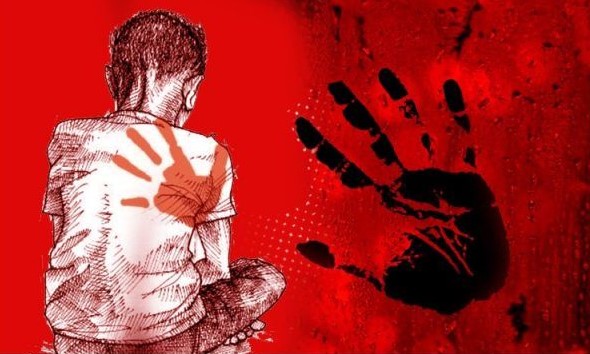
Raising awareness about the prevalence and impact of male child abuse is a crucial step towards creating a more inclusive and supportive society
Amir Murtaza
The issue of child abuse particularly the abuse of male children, is a highly sensitive and complex matter, particularly in societies where traditional gender roles and male dominance prevail. Discussing child abuse in general in Pakistan is already challenging, but male-child abuse faces additional barriers due to societal expectations and stereotypes surrounding masculinity, vulnerability, and power dynamics.
A report from the home department of Punjab, published recently, has expressed serious concerns about the increasing rate of child abuse in the province. The report reveals that the number of boys facing abuse is higher than girls. As per the report, during first five and a half months of this year, a total of 1,390 incidents of child abuse were reported in Punjab and of them 959 (69%) victims were boys and 431 (31%) girls.
Many societies emphasize male strength, resilience, and self-reliance, perpetuating the belief that males should not be victims of abuse, especially when it involves issues like sexual abuse or exploitation. These beliefs often lead to marginalization and silencing of male victims, creating an environment where their experiences are disregarded, dismissed, or met with disbelief.
Traditional gender norms also contribute to the reluctance of male victims to come forward and report abuse. The fear of stigma, shame, or being seen as weak prevents them from seeking help and support. Consequently, cases of male-child abuse are often underreported, making it even more challenging to effectively address the issue.
It is crucial to acknowledge that child abuse, regardless of the victim’s gender, is a serious problem that demands attention and intervention. Addressing the taboo surrounding male-child abuse requires challenging deeply ingrained societal beliefs, raising awareness, and fostering a safe and supportive environment for victims to seek help.
There is an immediate need to formulate comprehensive policies and develop programs specifically tailored to ensure the well-being of these abused children
Male child abuse is a deeply concerning issue in Pakistan that often remains overlooked and receives less attention due to prevailing mindsets and gender norms. While child abuse affects both boys and girls, the plight of male victims is often overshadowed by societal beliefs and stereotypes. This is primarily due to a cultural emphasis on masculinity, which perpetuates the notion that males should be strong, invulnerable, and able to protect themselves. As a result, male child abuse is frequently dismissed, downplayed, or even denied, leading to a lack of support systems and resources for the victims.
One reason why male child abuse is overlooked is the prevailing mindset surrounding masculinity in our society. Men are expected to display strength, dominance, and stoicism, while vulnerability and victimhood are often seen as signs of weakness. This harmful perception makes it difficult for male victims to come forward and share their experiences, fearing judgment, ridicule, and a loss of social status. Consequently, many cases of abuse go unreported, and the victims suffer in silence, exacerbating their trauma and hindering the process of seeking justice and support.
Another factor contributing to the lack of attention given to male child abuse is the gender norms that dictate societal priorities. In a patriarchal society like Pakistan, where gender roles are deeply ingrained, the focus is often placed on the protection and welfare of girls and women. While this is crucial and necessary, it leads to the neglect of male victims and their specific needs. The prevalent belief that males are inherently strong and capable of defending themselves leads to an assumption that they do not require the same level of support and protection as their female counterparts.
Furthermore, traditional gender norms perpetuate the notion that males should remain silent about their experiences of abuse, as speaking out is viewed as a challenge to their masculinity. This silence creates a barrier to acknowledging and addressing the issue effectively. The lack of awareness and understanding regarding male child abuse perpetuates a cycle of silence, further marginalizing male victims and preventing them from accessing the assistance they desperately need.
Many cases of abuse go unreported, and the victims suffer in silence, exacerbating their trauma and hindering the process of seeking justice and support
To address the issue of male child abuse, it is crucial to challenge and dismantle the prevailing mindset and gender norms. Raising awareness about the prevalence and impact of male child abuse is a crucial step towards creating a more inclusive and supportive society. Education and sensitization programs should be implemented to help individuals recognize and empathize with the experiences of male victims. Additionally, it is essential to establish safe spaces and support networks where male survivors can seek help without fear of judgment or societal backlash.
By acknowledging the issue of male child abuse and providing the necessary support, Pakistan can work towards creating an environment that protects the rights and well-being of all children, regardless of their gender. It is only by challenging deeply ingrained gender norms and promoting a culture of empathy and understanding that progress can be made in addressing this critical issue and ensuring the safety and recovery of male victims of child abuse.
Pakistan has made significant progress in establishing institutions that prioritize the protection and welfare of children, such as the National Commission on the Rights of the Child (NCRC) and provincial child protection authorities. However, it is crucial to acknowledge and address the pressing issue of protecting and safeguarding the rights of male children who have been subjected to violence or sexual abuse. To accomplish this, there is an immediate need to formulate comprehensive policies and develop programs specifically tailored to ensure the well-being of these abused children.
_____________
About the Author
 The writer is a Consultant and Researcher. Based in Karachi, Amir Murtaza is a published writer of two poetry books, “Khizan Main Rang Dhoondta Hoon” & “The Last Clouds”. He has also written a number of short stories for children. Amir can be contacted at amirmurtaza1@hotmail.com
The writer is a Consultant and Researcher. Based in Karachi, Amir Murtaza is a published writer of two poetry books, “Khizan Main Rang Dhoondta Hoon” & “The Last Clouds”. He has also written a number of short stories for children. Amir can be contacted at amirmurtaza1@hotmail.com
[…] Read: Empowering Male Child Abuse Survivors […]